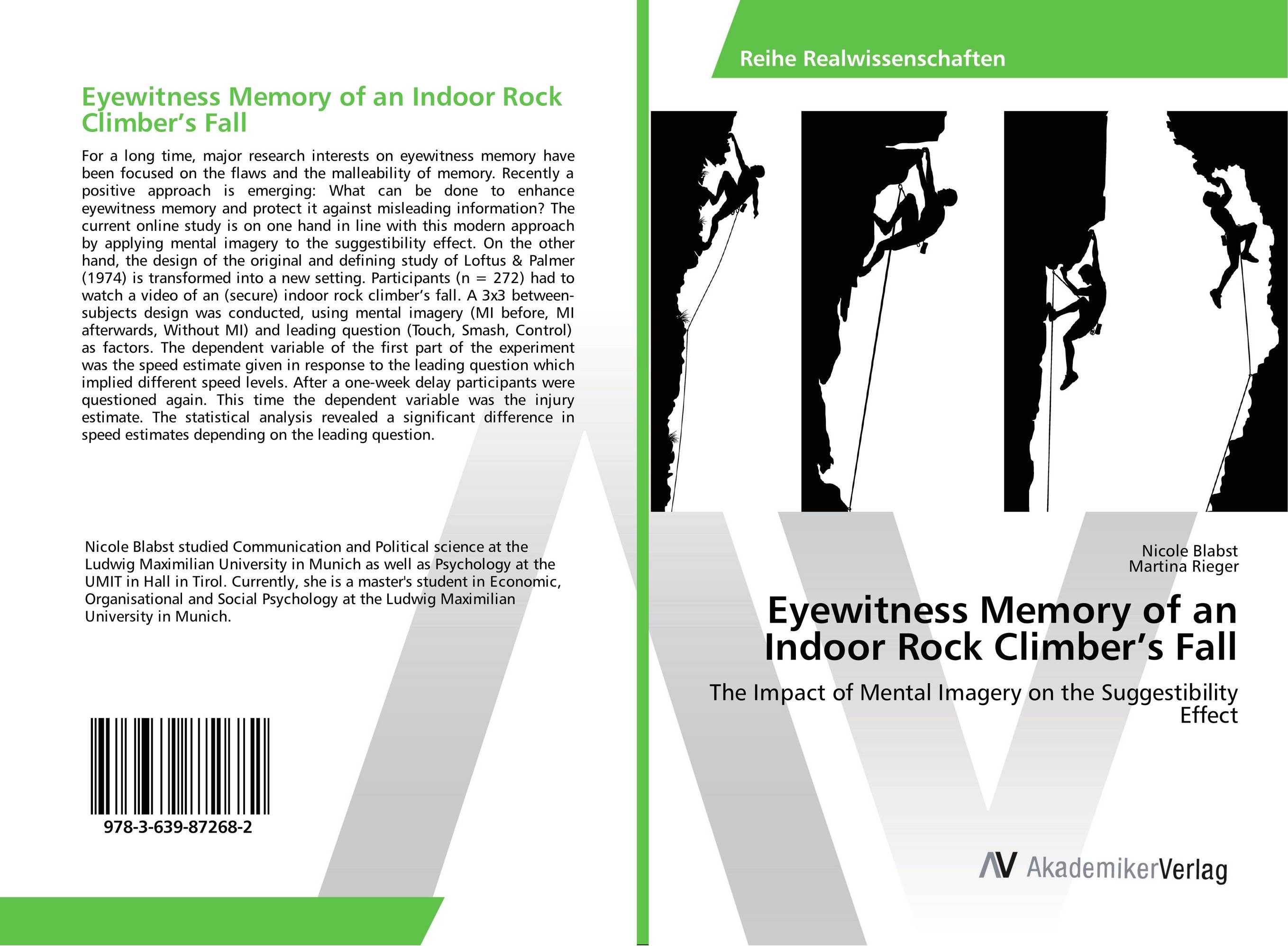| Поиск по каталогу |
|
(строгое соответствие)
|
- Профессиональная
- Научно-популярная
- Художественная
- Публицистика
- Детская
- Искусство
- Хобби, семья, дом
- Спорт
- Путеводители
- Блокноты, тетради, открытки
Eyewitness Memory of an Indoor Rock Climber’s Fall. The Impact of Mental Imagery on the Suggestibility Effect

В наличии
| Местонахождение: Алматы | Состояние экземпляра: новый |

Бумажная
версия
версия
Автор: Nicole Blabst and Martina Rieger
ISBN: 9783639872682
Год издания: 2016
Формат книги: 60×90/16 (145×215 мм)
Количество страниц: 52
Издательство: AV Akademikerverlag
Цена: 20988 тг
Положить в корзину
| Способы доставки в город Алматы * комплектация (срок до отгрузки) не более 2 рабочих дней |
| Самовывоз из города Алматы (пункты самовывоза партнёра CDEK) |
| Курьерская доставка CDEK из города Москва |
| Доставка Почтой России из города Москва |
Аннотация: For a long time, major research interests on eyewitness memory have been focused on the flaws and the malleability of memory. Recently a positive approach is emerging: What can be done to enhance eyewitness memory and protect it against misleading information? The current online study is on one hand in line with this modern approach by applying mental imagery to the suggestibility effect. On the other hand, the design of the original and defining study of Loftus & Palmer (1974) is transformed into a new setting. Participants (n = 272) had to watch a video of an (secure) indoor rock climber’s fall. A 3x3 between-subjects design was conducted, using mental imagery (MI before, MI afterwards, Without MI) and leading question (Touch, Smash, Control) as factors. The dependent variable of the first part of the experiment was the speed estimate given in response to the leading question which implied different speed levels. After a one-week delay participants were questioned again. This time the dependent variable was the injury estimate. The statistical analysis revealed a significant difference in speed estimates depending on the leading question.
Ключевые слова: Mental imagery, suggestibility effect, leading questions, eyewitness memory, false memory, Suggestibilit?t, mentale Vorstellung, Suggestivfragen, Augenzeugenerinnerung, falsche Erinnerung



